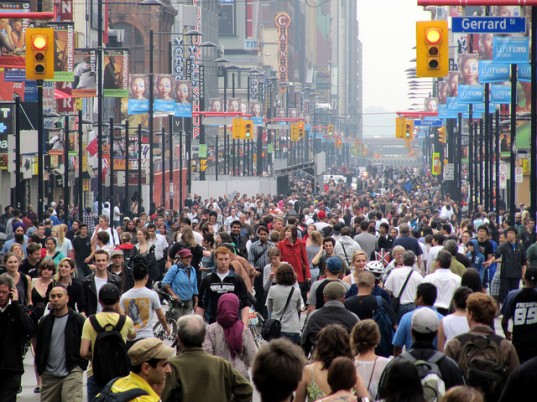
Recently, in The New Yorker, psychologist Paul Bloom took a shot at the idea that empathy is a necessary component of moral judgement or behavior. In fact, the stirrings of our conscience, he says, can often lead us astray. We tend to be more moved by the small problems near us than big problems far away. It’s hard to fire off mirror neurons if other people’s norms and culture are different enough from yours that you can’t read their expressions or anticipate their reactions. And we tend not have a small-c catholic approach to empathy — we feel kinship with the victim, but not the mugger. Thus, Bloom concludes, “Empathy has some unfortunate features—it is parochial, narrow-minded, and innumerate. We’re often at our best when we’re smart enough not to rely on it.”
So Bloom would be unlikely to recommend that you increase your sensitivity to empathetic feelings (perhaps by taking oxcytocin). Bloom thinks instead that we might do better to just use empathy as a goad to be a little more abstract and deliberate. We can trust empathy to remind us we’d like to treat other people well, but we need a different system to tell us how. He sees promising evidence for this approach.
A race of psychopaths might well be smart enough to invent the principles of solidarity and fairness. (Research suggests that criminal psychopaths are adept at making moral judgments.) The problem with those who are devoid of empathy is that, although they may recognize what’s right, they have no motivation to act upon it. Some spark of fellow-feeling is needed to convert intelligence into action.
But a spark may be all that’s needed. Putting aside the extremes of psychopathy, there is no evidence to suggest that the less empathetic are morally worse than the rest of us. Simon Baron-Cohen observes that some people with autism and Asperger’s syndrome, though typically empathy-deficient, are highly moral, owing to a strong desire to follow rules and insure that they are applied fairly.
But, as someone who’s a lot closer to the model that Bloom praises, I have my doubts about his approach. I agree that we’re bad at doing the math to understand the impact of our actions and choices, and, in fact, it’s painful to double check that we’re actually helping — we might reveal we’re not! But Bloom doesn’t spend much time talking about the problem of coming to morality through a passionate love of rules rather than people.
A desire to follow rules and ensure fairness might lead lead you toward agape, but it might just as well lead you to a Javert-like system that is fair — it is merciless to everyone. Even a Kafka-esque arrangement is fair insofar as it is universal. There are too many well-organized systems of rules to trust ourselves to light on a good one without something more than consistency to recommend it. I agree with Bloom’s first sentence in the below:
Empathy is what makes us human; it’s what makes us both subjects and objects of moral concern. Empathy betrays us only when we take it as a moral guide.
But using anything else as a moral guide leaves us insensitive to the fact that we’re looking for an ethical way to treat humans, people whose capacities and shortcomings are accessibly and understandable to us, because we share them. So, how can we act effectively in the very large world without losing touch with the foundation of our ethical intuitions?
Instead of fixing humans, who are complicated and kludgy, we can always try altering our environment, instead. Given my shortness of breath, I wouldn’t live in a twelve-story walk-up. Given my scope-insensitivity, I shouldn’t put myself in a position where I make large-scale decisions casually, using heuristics tailored to small groups. Instead, I might follow the principle of subsidiarity, where all choices are made at the lowest possible level, closest to the scale where we can see the people we’re serving, and react to them, not abstractions or the nearest available analogue.
If small-scale interactions are the norm, large-scale interventions feel peculiar, and it’s a bit more natural to reach for some deliberate debiasing practice, instead of relying on habit. Before taking action at the scale where your empathy can’t do the math, you might consult a dictionary of numbers, to make the stakes a little more visceral. Or you might do a writing exercise where you try to write a story with your enemy as protagonist or pass an Ideological Turing Test from his point of view, since you know you’re worse at agape when you’re angry. You might set up some of your charitable donation to just be automatically deducted and sent to GiveWell, since you know you can’t trust yourself to be reminded about the need for malaria nets in day to day life.
Empathy is what makes the pain of others vividly, unavoidably present to us. Not all suffering manages to trip the circuit, but I can still make good use of it if I look for more ways to trigger it and, in the meantime, avoid putting myself in a position to sin against others through negligence. I’d prefer that to trying to switch my conscience over wholesale to a more distant approach, where I receive more feedback from my inner-moral-Scantron grader and less from other people.












